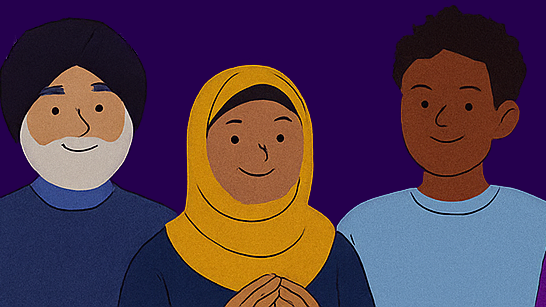Accountability, Representation, and the Power of Global Oversight
Part of the CERD Awareness Series
CERD in Scotland: Connecting Local Voices to Global Justice
Every commitment to equality needs accountability. Article 8 of the International Convention on the Elimination of All Forms of Racial Discrimination (CERD) establishes the Committee on the Elimination of Racial Discrimination (CERD Committee), the group of independent experts who monitor how well governments are living up to their promises to eliminate racial discrimination.
At first glance, it may sound like a distant process meeting in Geneva, legal reports, and international recommendations. But in truth, Article 8 brings global accountability closer to home. It ensures that the experiences of people facing racial inequality in Scotland are not overlooked or dismissed, but instead form part of a larger, global conversation about justice and human dignity.
A Global Committee, a Shared Responsibility
The CERD Committee is made up of experts from around the world, each bringing unique perspectives and professional experience. Their task is simple but profound to assess how well each country is addressing racial discrimination and to guide them on what needs to improve.
For Scotland, this global oversight links our local realities to international responsibility. While the UK Government represents all nations in the reporting process, the Committee’s recommendations apply equally to the lives of people in Scotland from families navigating barriers in education, to communities striving for fair representation in public life.
Representation: Seeing Ourselves in the System
Representation is more than just a seat at the table; it’s about being heard, seen, and understood. The CERD Committee’s diversity is intentional; gender, geography, and expertise all shape its balanced approach. But true representation also depends on who contributes to the process.
Across Scotland, ethnic minority communities and organisations are helping to ensure that lived experiences inform these global reviews. Through civil society submissions, community testimonies, and policy consultations, people are turning their local challenges into evidence that shapes real change.
Take, for example, Fatima, a Scottish Nigerian youth advocate who contributed to a civil society submission ahead of the UK’s CERD review. Her reflections on educational inequality and cultural misrepresentation in the curriculum were later cited in broader discussions about systemic barriers.
Stories like Fatima’s show how global mechanisms can make local voices powerful. Representation at the international level affirms that every experience of discrimination no matter where it occurs has a place in the global pursuit of justice.
Accountability: From Words to Action
When the CERD Committee reviews the UK’s progress, it publishes concluding observations, a set of recommendations highlighting what is working and what still needs attention. These recommendations don’t just sit on a shelf; they guide policies, inspire new initiatives, and empower communities to hold governments accountable.
For example, the Committee has repeatedly called for better ethnic data collection, stronger anti-racism education, and improved access to justice for victims of discrimination. These are issues that directly affect Scotland’s communities from underrepresentation in leadership roles to racial bias in public services.
Accountability doesn’t end with acknowledgment. It demands visible change inclusive schools, fair recruitment practices, and public spaces where everyone feels they belong. When government, civil society, and communities work together, international commitments like CERD become tools for transformation rather than distant ideals.
Scotland’s Place in the Global Equality Movement
Scotland continues to demonstrate a strong commitment to human rights and racial equality through the Race Equality Framework, community partnerships, and ongoing efforts to embed international treaties into Scots law. But progress must be sustained by reflection. Article 8 reminds us that leadership in equality also means openness to scrutiny.
By learning from international recommendations and listening to community voices, Scotland strengthens its place in the global movement toward fairness and inclusion. The work of organisations like BEMIS Scotland ensures that minority ethnic communities not only benefit from these rights but also help to shape how they are realised in practice.
From Global Oversight to Local Empowerment
At its heart, Article 8 tells a simple truth: equality grows stronger when everyone is accountable. The CERD Committee’s oversight keeps nations including Scotland to moving forward, learning, and improving.
When someone in Scotland shares their story and it reaches Geneva, it becomes part of a global effort to ensure that no one’s experience of racism is ignored. That connection from the local to the global, is what turns principles into progress.
As we continue to build a Scotland that celebrates diversity and protects dignity, let’s remember that we are part of something bigger. The fight against racial discrimination is not just a local duty; it’s a shared human mission.
⚖️ CERD in Scotland: From Commitment to Action
Together, our stories, advocacy, and partnerships help turn accountability into change and change into equality.
#CERDSeries #HumanRightsScotland #EqualityInAction #BEMISScotland #InclusionMatters #RepresentationMatters #AntiRacismInAction #GlobalToLocal #CommunityVoices #ScotlandForAll

